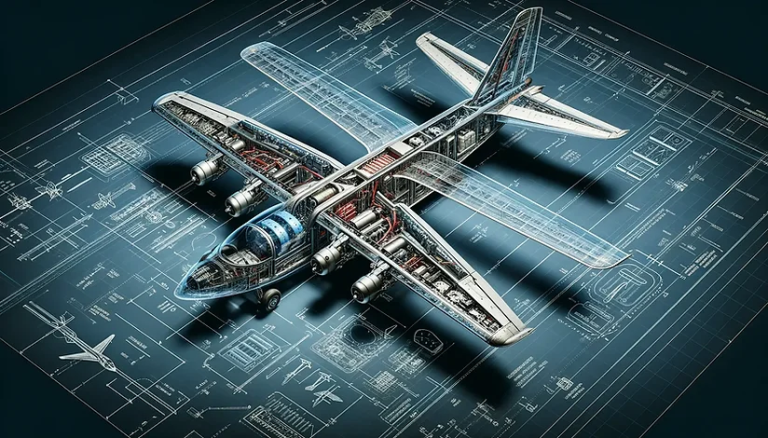In aerospace, where innovation drives every advancement, lithium batteries are revolutionizing energy storage and management. The unique demands of this field—lightweight components, high energy density, and reliability under extreme conditions—make lithium battery technology a natural fit. As aviation, space exploration, and unmanned aerial systems evolve, lithium batteries are poised to become even more integral, paving the way for breakthroughs in efficiency, sustainability, and performance.
This article explores the role of lithium batteries in aerospace applications, their benefits, the challenges they address, and emerging innovations shaping the future.
The Growing Role of Lithium Batteries in Aerospace
- Lightweight Power Solutions
Weight is a critical factor in aerospace engineering. Lithium batteries offer an exceptional power-to-weight ratio compared to traditional options like nickel-cadmium (NiCd) or lead-acid batteries. By reducing battery weight, aircraft and spacecraft can carry additional payloads, extend flight ranges, or improve fuel efficiency.
- Enhanced Energy Density
Lithium-ion batteries provide higher energy density, allowing aerospace systems to operate longer without frequent recharging or replacement. This is crucial for applications such as satellites, drones, and long-duration space missions.
- Reliability in Extreme Conditions
Aerospace environments demand components that perform consistently in extreme temperatures, high altitudes, and vacuum conditions. Lithium batteries, with proper thermal management and advanced designs, meet these stringent requirements.

Applications of Lithium Batteries in Aerospace
- Commercial and Electric Aviation
The aviation industry is actively pursuing electrification to reduce its carbon footprint. Lithium batteries power electric and hybrid aircraft, providing cleaner alternatives to traditional jet fuel. While still in developmental stages for large commercial planes, they are already being used in smaller aircraft for short-haul flights.
- Satellites and Spacecraft
Space missions rely heavily on lithium batteries for energy storage, ensuring uninterrupted power for instruments, communication systems, and propulsion during the shadow phases of orbits. Their lightweight and high capacity make them indispensable for satellite operations and interplanetary exploration.
- Unmanned Aerial Vehicles (UAVs)
Drones and other UAVs benefit from lithium batteries’ compact size and long operational life. These qualities are critical for military reconnaissance, disaster response, and commercial delivery systems.
- Emergency Backup Power
Aircraft require reliable backup systems for critical avionics and navigation equipment. Lithium batteries provide a dependable energy source during emergencies, ensuring passenger and crew safety.
- Space Exploration
For Mars rovers, lunar landers, and deep-space probes, lithium batteries support diverse functions, from powering scientific instruments to driving mobility systems. Their durability ensures they remain functional over years in harsh extraterrestrial environments.
Advantages of Lithium Batteries in Aerospace
- Longer Lifespan
Lithium-ion batteries endure thousands of charge cycles, making them suitable for aerospace applications that require longevity, such as satellites that may remain operational for decades.
- High Power Output
In high-demand scenarios like takeoff, propulsion, or re-entry, lithium batteries provide the required power burst without compromising performance or safety.
- Scalability
Lithium battery systems are modular, allowing customization based on the specific energy and space constraints of an aerospace project.
- Reduced Maintenance
Unlike older battery technologies, lithium batteries require minimal maintenance, reducing operational downtime and costs.
Challenges of Lithium Batteries in Aerospace
- Thermal Management
The high energy density of lithium batteries increases the risk of thermal runaway—a chain reaction of overheating and potential fire. Effective cooling and thermal regulation systems are essential to mitigate this risk.
- Cost Considerations
The initial development and integration costs for lithium battery systems can be high. However, these expenses are often offset by improved performance and lower operational costs over time.
- Longevity in Extreme Conditions
While lithium batteries are reliable, maintaining their performance under prolonged exposure to extreme temperatures and radiation (especially in space) requires continuous innovation in materials and design.
- Resource Dependency
Lithium-ion batteries rely on materials like lithium, cobalt, and nickel, whose supply chains face geopolitical and environmental challenges. Developing sustainable sourcing and recycling practices is vital.
Emerging Innovations in Aerospace Lithium Batteries
- Solid-State Lithium Batteries
These batteries replace liquid electrolytes with solid materials, improving safety and energy density. Their ability to operate in extreme temperatures makes them promising for aerospace applications.
- Lithium-Sulfur Batteries
Lithium-sulfur batteries offer a significantly higher energy density than current lithium-ion technology. Their lightweight properties and low environmental impact make them attractive for aviation and space exploration.
- Advanced Thermal Management Systems
Innovations in cooling technologies, such as phase-change materials and active thermal regulation, are enhancing the safety and reliability of lithium batteries in high-demand aerospace applications.
- Recycling and Material Recovery
Efforts to recover valuable materials from used lithium batteries are advancing, ensuring a more sustainable supply chain and reducing dependence on raw material extraction.
The Future of Lithium Batteries in Aerospace
- All-Electric Aircraft
As battery technology improves, fully electric commercial aircraft are becoming more feasible. These planes could revolutionize short-haul flights, offering zero-emission travel options.
- Longer Space Missions
Next-generation lithium batteries will enable spacecraft to undertake longer missions, supporting humanity’s ambitions to explore Mars, establish lunar bases, and travel deeper into the solar system.
- Advanced UAV Capabilities
Improved lithium batteries will extend the range and payload capacity of UAVs, enhancing their utility in both civilian and military applications.
- Hybrid Propulsion Systems
Combining lithium batteries with fuel cells or other energy sources can provide aerospace vehicles with efficient and reliable propulsion systems.
Environmental and Economic Impact
The widespread adoption of lithium batteries in aerospace can contribute to:
- Carbon Reduction: Electric and hybrid aircraft powered by lithium batteries significantly reduce greenhouse gas emissions.
- Operational Cost Savings: Lower fuel consumption and reduced maintenance costs make lithium battery systems economically attractive for aerospace operators.
- Resource Challenges: Addressing the environmental impact of battery production and disposal will be critical to ensuring sustainable growth.
Conclusion
Lithium batteries are transforming aerospace by delivering lightweight, high-performance energy solutions for a wide range of applications. While challenges remain, ongoing advancements in battery technology and sustainability practices promise to unlock their full potential. As the aerospace industry continues to innovate, lithium batteries will play a central role in shaping a cleaner, more efficient, and connected future.

